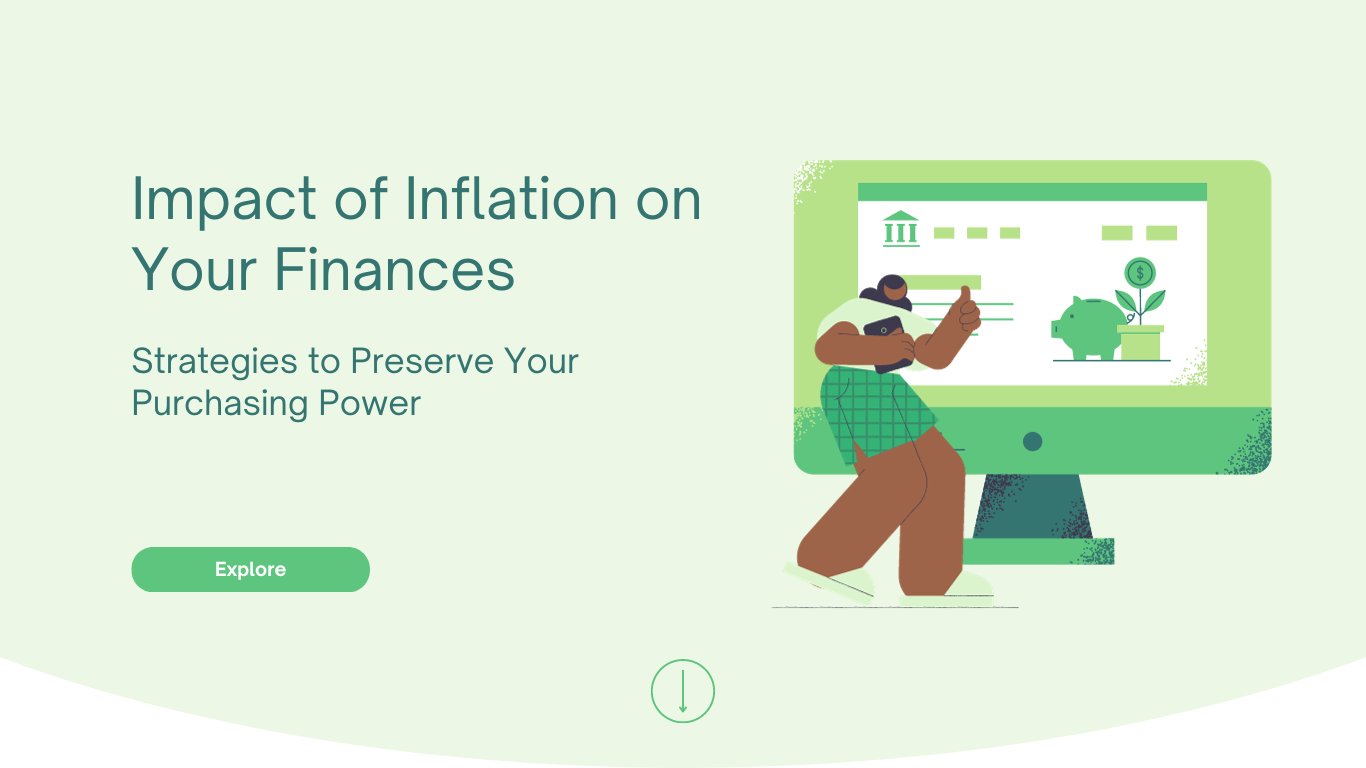13 June, 2024
Impact of Inflation on Your Finances: Strategies to Preserve Your Purchasing Power
Inflation is often a silent threat that gradually erodes the value of your money over time. Understanding the impact of inflation on your personal finances is crucial, as it affects everything from your daily purchasing power to your long-term savings and investment plans. While inflation is an economic phenomenon often considered out of an individual's control, several strategies can help safeguard your finances and ensure your purchasing power remains intact.
Understanding Inflation:
Inflation refers to the general rise in the price levels of goods and services over time, resulting in a decrease in the purchasing power of your currency. Essentially, when inflation is high, every dollar you own buys a smaller percentage of a good or service. The effects can be far-reaching, from diminished value of cash savings to increased costs of living, all of which can be particularly detrimental for fixed-income earners and retirees.
Impact on Personal Finances:
1. Erosion of Savings: The most immediate effect of inflation is the reduction in the value of money saved. As prices rise, the same amount of money will afford fewer goods and services.
2. Cost of Living: A higher inflation rate means the daily expenses of maintaining your standard of living will increase, potentially straining your budget.
3. Debt Management: While inflation increases the nominal cost of goods and services, it may have a silver lining if you have fixed-rate debts. The real value of your debt may decrease over time, making repayments less burdensome in proportion to your income.
4. Investment Challenges: Inflation can be a double-edged sword for investments. While it can potentially decrease the real value of future returns, certain asset classes, like real estate or stocks, may benefit from price rises.
Strategies to Preserve Purchasing Power:
1. Smart Savings: Regular savings accounts are susceptible to inflation. Consider high-yield savings accounts or certificates of deposit (CDs) with favorable interest rates to help your savings grow and counteract the effects of inflation.
2. Investment in Tangible Assets: Investing in tangible assets like real estate or commodities (e.g., gold) can provide a hedge against inflation, as their value typically rises with inflation.
3. Diversified Portfolio: Having a mix of stocks, bonds, and other investments can help protect your finances. Stocks may offer potential growth and sometimes dividends, often outpacing inflation over the long term. Inflation-protected securities, such as Treasury Inflation-Protected Securities (TIPS), can also help safeguard your investments.
4. Increase Income Streams: Creating multiple income streams can be an effective way to combat the effects of rising costs. Consider freelance work, consulting, rental income, or dividend-yielding investments to support your primary income.
5. Cost-of-Living Adjustment (COLA): For retirees, it’s essential to have a retirement plan that factors in inflation. This may include investments with a cost-of-living adjustment that will increase your retirement income to keep pace with inflation.
6. Financial Planning and Budgeting: Continually assess your financial health, budget effectively, cut unnecessary expenses, and plan for future financial goals. Working with a financial advisor can provide personalized strategies that account for inflation.
Conclusion:
While inflation can pose significant challenges, understanding its impact and adopting effective strategies can mitigate its adverse effects on your financial health. By actively planning, investing wisely, and diversifying your financial strategies, you can better position yourself to preserve, and even potentially enhance, your purchasing power in the face of inflation. Remember, the goal is not just to 'beat' inflation but to build a robust financial foundation for the future, ensuring stability and peace of mind in your financial endeavors.

